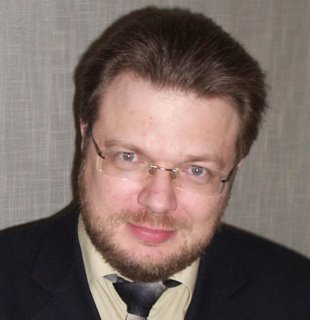Mobile TV a hot ticket in Europe, MIP
(c) Hollywood Reporter
CANNES -- When it comes to the mobile phone industry, the common wisdom is that Asia is five years ahead of Europe, which is five years ahead of the U.S.
So with mobile television taking off in such Asian territories as Korea and Japan, it's no wonder European and U.S. execs at MIPTV were scrambling to find out where the nascent industry is going. Mobile TV conferences were the hot ticket, with attendees packing conference halls and security turning people away.
South Korea is the mobile market everyone is studying. The country makes an ideal testing ground as it has two digital mobile broadcast platforms -- one a free-to-air advertising-sponsored terrestrial service and another subscription-based model.
About 4 million mobile TV-ready devices have been sold for the ad-supported DMB-T platform in Seoul, a city with a population of about 10 million. The Korean mobile TV audience is expected to skyrocket in May when the service expands nationwide.
TU Media, the subscription-based model, boasts a million subscribers for its service, which carries content from, among others, E! Entertainment Networks.
So with mobile television taking off in such Asian territories as Korea and Japan, it's no wonder European and U.S. execs at MIPTV were scrambling to find out where the nascent industry is going. Mobile TV conferences were the hot ticket, with attendees packing conference halls and security turning people away.
South Korea is the mobile market everyone is studying. The country makes an ideal testing ground as it has two digital mobile broadcast platforms -- one a free-to-air advertising-sponsored terrestrial service and another subscription-based model.
About 4 million mobile TV-ready devices have been sold for the ad-supported DMB-T platform in Seoul, a city with a population of about 10 million. The Korean mobile TV audience is expected to skyrocket in May when the service expands nationwide.
TU Media, the subscription-based model, boasts a million subscribers for its service, which carries content from, among others, E! Entertainment Networks.
Those are figures most players in Europe can only dream of. Italy, with three national providers, is the leader of the pack. Other mobile TV networks in Germany and the U.K. are restricted to major urban areas.
Although reliable figures for the market are hard to come by, most analysts say there are at least 5 million mobile TV users in Italy. Those estimates, however, include large numbers of potential users (those with an active account and a compatible mobile device) who use a mobile service only rarely.
Compare that with Germany, where the country's sole mobile TV carrier, Mobiles Fernsehen Deutschland, measures its customer base in the low thousands.
"Italians love new technology, and this is an example of that," said Javier Noriega, chief economist and telecommunications sector analyst with investment bankers Hildebrandt and Ferrar. "But there is a learning curve involved, and costs (for use of the service) are still relatively high. But it's safe to say that mobile TV has a foothold here."
MFD managing director Henrik Rinnert believes the mobile TV industry will begin to take off across Europe by year's end as analog TV channels switch to the digital spectrum, freeing bandwidth for mobile TV programming. MFD, which operates four mobile TV channels, hopes to launch an additional 16 in Germany by year's end.
With mobile cell penetration near 100% across Europe, content providers see a massive market just waiting to pop. A recent study by Goldmedia, sponsored by NBC Universal Global Networks Deutschland, suggested that by 2012 about 8.7 million customers in Germany will be using mobile TV.
On the monthly subscription model that most mobile TV carriers use, that could translate into a healthy windfall for companies that can work out the right business strategy and deliver what end users are willing to pay for.
"It is still very early but we are seeing certain trends emerging," Rinnert said. "Content-wise, what interests users most is news -- information programming. That's followed by comedy in short clips. At the moment, longform of any sort isn't what people want to watch on their mobile screen."
In Italy, the trend is similar, but decidedly sports-based. According to a spokesman for mobile carrier Vodafone-Italia, the most popular mobile TV programming is results and footage of soccer matches.
"Without soccer, the market here would be much less viable," the spokesman said.
But if Korea is any measure, as audiences get used to the new technology, they will start to demand less news and more entertainment. There, longform drama is consistently the most-watched programming on the TU Media mobile network.
"We were also really surprised," said David Taegho Ahn, business operations director of Munhwa Broadcasting Corp., which carries its drama shows on TU Media. "Drama on the go is a substitute for home viewing. It's catch-up TV."
Not wanting to be left behind, production companies are moving to create mobile-specific programming. Sony Pictures Television International is pushing its mobile-ready series "Afterworld" at MIPTV. The computer-generated sci-fi drama consists of 130 three-minute episodes that can be packaged as a standard 30-minute TV drama or used as mini-episodes for easy cell phone consumption.
Germany's Phoenix Film has produced the horror series "Kill Your Darling," exclusively for mobile use.
"It's a new medium and no one quite knows how to produce for it yet," said Alexander Coridass, head of program and marketing at German sales group ZDF Enterprises. "People are trying out different things.
"No one knows yet what will work, but the mobile market will come and it will be big," he added. "I have no doubt about that."
Technorati tags:


0 Comments:
Post a Comment
<< Home